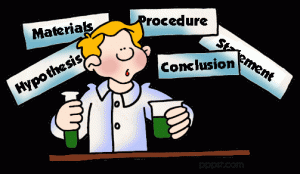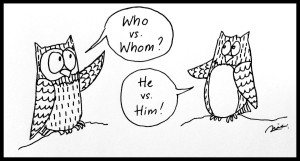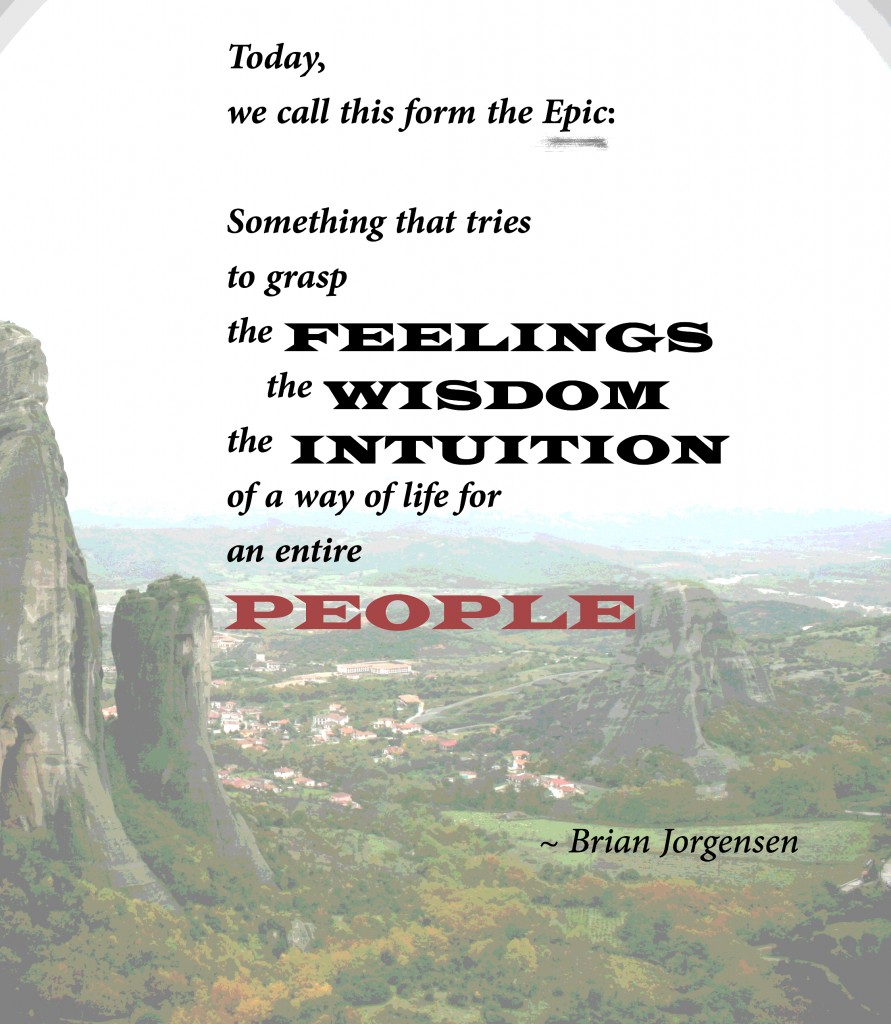October 11, 2013 at 1:56 pm

Source: bit.ly/17uz6At
A recent post from Scientific American discusses the sticky subject of science and its role in morality. The scientific method has spewed some seemingly immoral conclusions. How do deal with that? Here are some thoughts:
Researchers at the University of California Santa Barbara hypothesized that there is a deep-seated perception of science as a moral pursuit — its emphasis on truth-seeking, impartiality and rationality privileges collective well-being above all else. Their new study, published in the journal PLOSOne, argues that the association between science and morality is so ingrained that merely thinking about it can trigger more moral behavior.
…
The researchers found consistent results. Simply being primed with science-related thoughts increased a) adherence to moral norms, b) real-life future altruistic intentions, and c) altruistic behavior towards an anonymous other. The conceptual association between science and morality appears strong.
…
These results might seem encouraging, particularly to fans of science. But one possible cost of assigning moral weight to science is the degree to which it distorts the way we respond to research conclusions. When faced with a finding that contradicts a cherished belief (e.g. a new study suggesting that humans have, or have not, contributed to global warming), we are more likely to question the integrity of the practitioner. If science is fundamentally moral, then how could it have arrived at such an offensive conclusion? Blame the messenger.
How can we correct this thought process? A greater emphasis on, and better understanding of, the method might do the trick. It’s significantly harder to deny the import of challenging findings when you have the tools necessary to evaluate the process by which scientists arrived at their results. That new study on global warming is tougher to dismiss when you know (and care enough to check) that the methods used are sound, regardless of what you think the authors’ motivations might be. In the absence of such knowledge, the virtue assigned to “science” might also be a motivational force for ideological distortion, the precise opposite of impartial truth-seeking.
Food for thought.
By mdimov
|
Posted in Academics, Great Questions
|
Tagged behavior, ethics, immoral, method, Moral, morality, Science, scientific
|
October 11, 2013 at 12:28 pm

We know it's long past the beginning of the semester; Gilgamesh has long been pushed out of your mind by Genesis and other such greats. Maybe a little reminiscing would not be out of place though. What text could be more deserving than Gilgamesh, considering the complexity yet purity, the extreme ancientness of being the first yet the universal appeal that still makes this text relatable. This wonderful blog post brings up the novel again and has us take a deeper look at the beauty of Gilgamesh and Enkidu's friendship:
This great love comes from the fact that the two compliment each other so well. When they first meet, they are both untamed men. Gilgamesh is more divine than human and Enkidu is more animal, than human. It is through their friendship that they both find their humanity.
How can you not be touched by this description? The world of Gilgamesh was just rising out of the earth and into civilization. This story captures that but also goes beyond to encapsulate the fears this new "humanity" brings with it. Thousands of years later, we're still looking at the same questions, the same love. Read the rest of the post here. If you want to hear Patrick Stewart telling the story (yeah, basically if you want to hear perfection and cry a little bit) here you go!
Now stop reading blog posts and go out and enjoy this beautiful Friday.
By fegoss01
|
Posted in Uncategorized
|
October 9, 2013 at 3:17 pm

Any caring dog companion cannot deny the special, human bond they share with their furry friend. However, when it comes to the legal system, dogs, along with other domesticated animals, are treated much like property. Research over the past few decades has worked to prove that animals, in particular mammals, share many of the emotions of humans.
In one recent study, dogs were trained to go into an M.R.I. scanner without anesthesia to be able to explore their emotional brain activity. The dogs that participated in the study were treated like humans from the beginning (their owners had to sign a consent form like a child's and if the dogs showed signs of disinterest they were no longer made to participate) and no negative reinforcement was used. The findings were positive and give further evidence that dogs, and probably other mammals, are creatures with emotions:
In dogs, we found that activity in the caudate increased in response to hand signals indicating food. The caudate also activated to the smells of familiar humans. And in preliminary tests, it activated to the return of an owner who had momentarily stepped out of view. [...] But now, by using the M.R.I. to push away the limitations of behaviorism, we can no longer hide from the evidence. Dogs, and probably many other animals (especially our closest primate relatives), seem to have emotions just like us. And this means we must reconsider their treatment as property.
The full article can be read on the The New York Times.
By vpriest
|
Posted in Uncategorized
|
October 9, 2013 at 1:32 pm

Monty Python enacting quarreling philosophers.
A dubious yet interesting report describes a gunfight between two Russian men arguing over Kant's philosophy:
MOSCOW (AP) — An argument in southern Russia over philosopher Immanuel Kant, the author of "Critique of Pure Reason," devolved into pure mayhem when one debater shot the other.
A police spokeswoman in Rostov-on Don, Viktoria Safarova, said two men in their 20s were discussing Kant as they stood in line to buy beer at a small store on Sunday. The discussion deteriorated into a fistfight and one participant pulled out a small nonlethal pistol and fired repeatedly.
The victim was hospitalized with injuries that were not life-threatening. Neither person was identified.
It was not clear which of Kant's ideas may have triggered the violence.
Core students may enjoy the limmerick-type comment under the actual report.
By mdimov
|
Posted in Uncategorized
|
October 8, 2013 at 3:15 pm

Image from http://pentopapercommunications.com
Have you ever been lost as to when to use "whom" instead of "who" in a sentence? When in doubt, this hilarious comic from The Oatmeal should set you straight!
By vpriest
|
Posted in Tuesday Humor
|
Tagged grammar
|
October 8, 2013 at 2:10 pm

Massachusetts has long upheld its reputation for higher education. The Boston/Cambridge area alone holds over 50 colleges and universities, including many of the best in the world (Harvard, MIT, Tufts, and of course Boston University). It is no surprise that this beautiful city is full of students from all over the country and all over the world, each looking for the best education money can buy and each finding it.
Yet Massachusetts exceeds expectations at every turn. Yes, they are known for their colleges, but this state also boasts some of the highest math and science scores of elementary to high school students in the world:
If Massachusetts were a country, its eighth graders would rank second in the world in science, behind only Singapore....Massachusetts eighth graders also did well in mathematics, coming in sixth, behind Korea, Singapore, Taiwan, Hong Kong and Japan.
Kenneth Chang's article, which you can read in its entirety here, explores the efforts that have been made across the state to improve the standard of education, not just in the richer districts, but everywhere. The increase in performance has been universal and steady. In a country spending so much time and energy on education reform, most of which seems largely counter-productive, it is nice to know that this state is living up to the standards of the next 100 years.
By fegoss01
|
Posted in Uncategorized
|
October 8, 2013 at 12:10 pm
By mdimov
|
Posted in Uncategorized
|
October 8, 2013 at 11:44 am

source: stillwaterpubliclibrary.blogspot.com
Even the most erudite and cultured Core students and faculty have at some point in their lives been placed in a sticky situation where lying about having read a book is the easiest way out.
A useful post from The Guardian gives us a study of the top ten books that people have pretended to have read:
- 1984 by George Orwell (26%)
- War and Peace by Leo Tolstoy (19%)
- Great Expectations by Charles Dickens (18%)
- The Catcher in the Rye by JD Salinger (15%)
- A Passage to India by EM Forster (12%)
- Lord of the Rings by JRR Tolkien (11%)
- To Kill A Mocking Bird by Harper Lee (10%)
- Crime and Punishment by Fyodor Dostoevsky (8%)
- Pride and Prejudice by Jane Austen (8%)
- Jane Eyre by Charlotte Bronte (5%)
Which books have you lied about? No one will judge. Professor Hamill secretly hasn't read The Hungry Caterpillar and there is a rumor that Core alumna Rose Grenier never opened Don Quixote... No one will judge!
By mdimov
|
Posted in Academics, alumni, Curriculum, Friday Fun, Great Questions
|
Tagged 1984, books, funny, Hamill, lies, pretending, reading
|
October 8, 2013 at 11:25 am

Per the question of objectivity vs subjectivity in the reporting of history, relevant to cc203's lecture on Thucydides' "History", check out this satirical piece by the Onion, titled World War II Documentary Suffused With Anti-Nazi Undertones.
(courtesy alumna Jenna Dee)
By mdimov
|
Posted in Curriculum, Great Questions, Uncategorized
|
Tagged CC203, history, Nazi, objectivity, Onion, subjectivity, Thucydides
|










